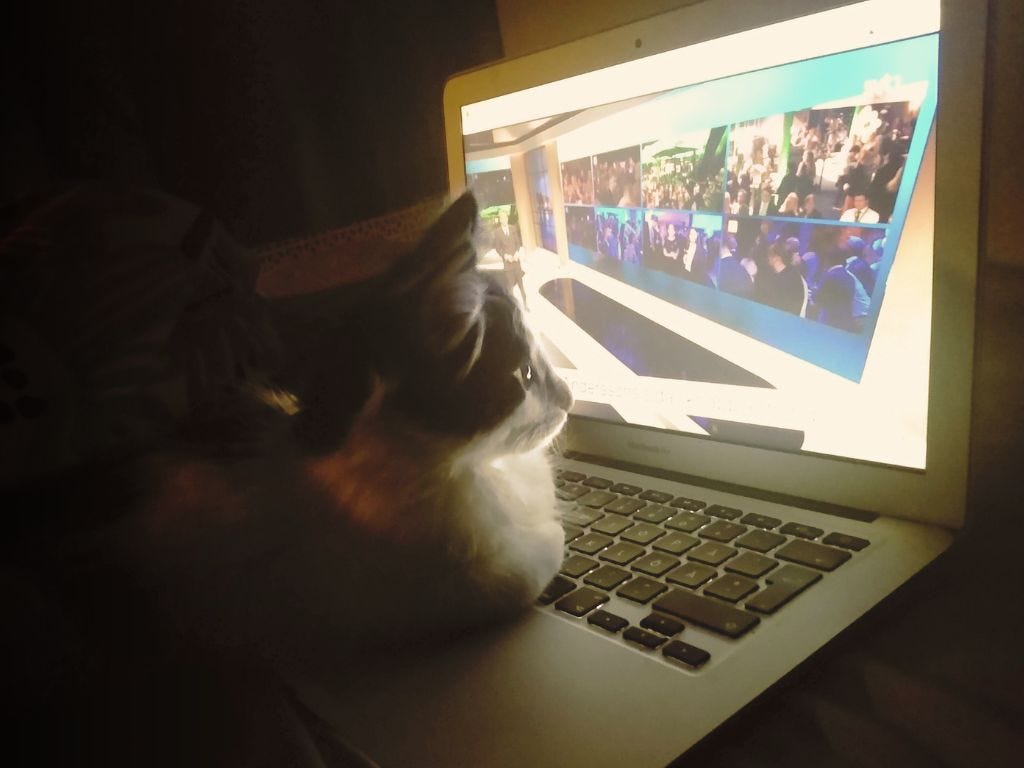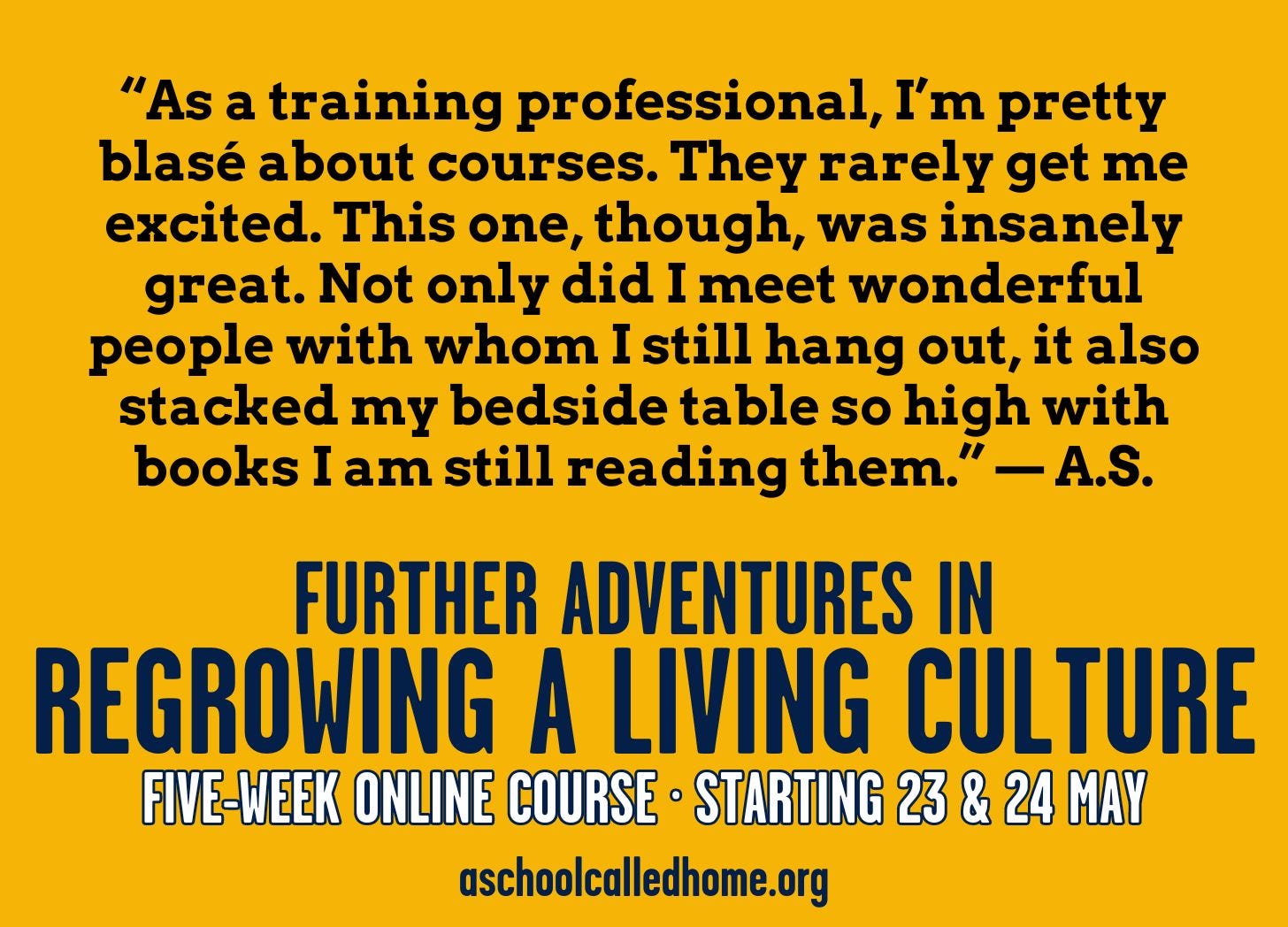“Only the gratuitous commitment of friends can enable me to practice the asceticism required for modern near-paradoxes: as that of renouncing systems analysis while typing on my Toshiba.” — Ivan Illich, The Cultivation of Conspiracy
Back in the summer of 2021, I got an invitation from
to join him for a conversation at The Stoa, the online campfire he was tending in those days.1 We’d been introduced by a mutual friend, but I was surprised when Peter said, “I’ve always thought of you as someone who does the internet right.” In fact, I was somewhere between flattered and baffled, because I’d always thought of me as someone who was slightly clueless when it came to doing the internet.I mean, I’d been on Twitter almost from the start – so early that when the journalists started showing up, an old BBC colleague got me to write him a “beginner’s guide” – but none of my tweets ever went viral. We all have our gifts, and I had friends who knew how to tickle the internet where it likes to be tickled, but that wasn’t one of mine.
So I’d filed Peter’s comment away in the memory box marked “Puzzling things people have said to me over the years”, and then a few weeks back I read a post of his, proclaiming a “new rule”:
Whatever you do, do not attempt to go viral. It’s desperate, reeks of spiritual neediness, and only leads to “the mid,” the place where everyone looks different but feels the same because they are operating under the same premise: I must impress and have people attend to me.
It’s funny thinking about this today, because it’s nine years to the day since I published the one thing I ever wrote that did go properly viral. It was a blogpost called The Only Way Is Down, written the morning after the British general election, when David Cameron had just won an unexpected majority. In the year and a half that followed, as politics went strange on both sides of the Atlantic, I wrote a couple of other pieces that travelled like that. Each time, for a few days afterwards, my inbox would be flooded with messages, people would reach out to talk about projects and collaborations – and then it would all slip away, the way an unusually vivid dream unravels in the minutes after waking.
By comparison, I think of the way the Dark Mountain manifesto travelled out into the world. It had bursts of attention, certainly, but there was no moment at which it went viral, and the flow of responses led to many projects and collaborations that actually came to pass. I’ve experienced something similar with the responses to At Work in the Ruins, which keep on coming.
And this brings me back to Peter’s post:
If called to create online, then create online, but create without machinations on how to get attention. If creating from the right place, the right attention will come.
To which I want to add: if you’re lucky, then attention won’t come as a swarm, but as something slower and more lasting. There’s a place for the energy of the crowd, the collective pooling of attention, and the temporary dream-like spaces this can take us, but I suspect this energy is best experienced in the flesh, rather than mediated over networks. (And either way, we all know the shadows that can accompany crowd consciousness.)
Alongside this comes another thought: we can be doing very different things in spaces that are set up to look as though everyone is engaged in the same activity, the same game, the same competition for attention. It’s not a question of play or get off the pitch. Rather, as Ursula Le Guin once wrote, “How you play is what you win.”2
So if there’s any sense in which I have been “someone who does the internet right”, then this is because “doing the internet right” involves ignoring the game to which we’re usually invited and putting the tools on offer to other uses. And this goes wider than just the internet: the half-voiced hunch that guides a lot of my work is that we can – and need to – find other moves than the ones we have been shown. That the ways of being human together that got most of the attention around here lately do not reflect the full range of possibilities available to us.
Returning to a theme that’s on my mind at the moment – the theme of the online series I’ll be teaching in the weeks ahead – to recover the sense that there are other ways of being human together, other games worth playing, is part of “the work of regrowing a living culture” as I understand it. There may be surges of attention around this work, now and then, but it’s not the kind of thing that catches like a virus; rather it spreads at the speed of trust, through the subtle shifts of attention that can take place in the field of relationship. As
put it, “Friendship is my theory of change.”The invitations out of which relationship grows are tentative. If someone claims the right to be my friend, we know they are making a joke or a category error. Likewise, it makes little sense to try to sell anyone on stepping into such a field. Rather, what can be extended is a wondering aloud: I wonder if you’ve felt this, too? Is there something that comes alive in you around these questions, something it might be worth us making time to explore together?
So that’s the spirit in which I want to extend the invitation to join me, starting a fortnight tomorrow, for the five-week journey we are calling Further Adventures in Regrowing a Living Culture. I look forward to being surprised by what we discover along the way.
DH
And is tending again, I understand, though somewhere further off into the dark forest.
The line is from “The Matter of Seggri”. I first met it in this post from Gordon White.



It's a sideways leap but I think you might enjoy this, Dougald- I was reminded of Richard Thompson on the Folk on Foot podcast I listened to yesterday- when asked whether he had found the lockdowns creatively fruitful, he said something like "It takes a virus to inspire us!" https://www.folkonfoot.com/episodes/richard-thompson-in-muswell-hill-(and-other-parts-of-london)
“I’d been on Twitter almost from the start – so early that when the journalists started showing up, an old BBC colleague got me to write him a “beginner’s guide” – but none of my tweets ever went viral. We all have our gifts, and I had friends who knew how to tickle the internet where it likes to be tickled, but that wasn’t one of mine.”
…some days I try to imagine various Saints and holy people desperate and dopamine addicted sweating at the keyboard trying to go viral and in doing so skipping over everything that needs to be said.
Bless you and your non-virality!